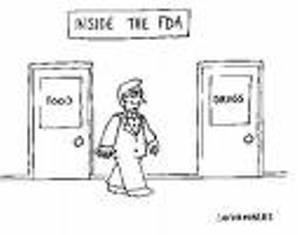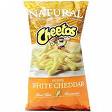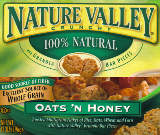 You bet. A HUGE difference. Although the terms “natural” and “organic” are often used together or interchangeable it’s actually very different.
You bet. A HUGE difference. Although the terms “natural” and “organic” are often used together or interchangeable it’s actually very different.
Consumers are misled, misadvised, mis-educated, misinformed, misguided, mis-communicated, mis-conceived misdirected – well you get the idea – the American people have fail to notice what the food industry is doing to them. We need to wake up and SEEK THE TRUTH and see what the world is becoming.
This page represents everything, your eating style, your health and your knowledge of food labels. Everything you put in your mouth affects your health. You can’t stop them (FDA, Big Pharma, Food Industry and the Government) but you can STOP yourself………..
Don’t buy NATURAL, ALL NATURAL, 100% NATURAL, or SOME NATURAL products.
IGNORE THESE LABELS – They are just there to intice you to get you to buy their products — this is BIG COMPANIES’ ulimate goal and will do anything.
The Food and Drug Administration (FDA) does not regulate claims of “all natural” or “natural vs organic”. They might claim to, but in reality, they don’t. Food companies can get away with using all sorts of non-natural processes and chemical ingredients in a food product that they claim is all natural.
I am here to educate you, the consumer. Please read on.
What does ‘natural’ means?
Its means NOTHING, absolutely NOTHING.
According to Webster’s new world dictionary, the word “natural” means, “produced or existing in nature; not artificial.” By that definition, anything derived from plants, animals or elements found on planet Earth could earn the “all natural” label.
The key is in understanding that it’s the process that’s unnatural, not the source. When you chemically or structurally alter food ingredients into a form that no longer appears anywhere in nature, it’s no longer natural, folks. Regardless, of what the food manufacturers claim. This make the difference between natural vs organic.
In the food industry today, there’s NO official definition of “all natural.” It means whatever the food companies want it to mean. It can mean, for example, that all the chemicals found in the product simply aren’t listed on the label. (There’s no requirement for food companies to list chemical contaminants found in their foods.)
A food labeled “all natural” can contain:
According to the FDA – their definition of “natural”… Natural foods are processed without preservatives or additives, but may have been grown with the use of pesticides or other conventional methods. The Food and Drug Administration (FDA) regulates the term ‘natural’ only as it applies to added color, synthetic substances, and flavors. The term ‘natural’ can include free-range and hormone-free, and it can mean that a product contains no synthetic ingredients or color additives. However, you should always check the label to be sure of a product’s ingredients. Check out Food Labels
In fact, the word “natural” on a food package may mean next to nothing because–unlike “organic”–“natural” has no meaning in law or regulation. For these reasons, the use of “natural” on food products all too often distracts attention from more important considerations.
Marketing experts know that, for many consumers, natural equals healthful, and that healthful sells. Natural vs Organic“Natural” is very misleading if it implies that a product is free of chemical additives (often not the case) or that competitors’ products are “unnatural and therefore bad for you.
Organic to the RescueThe production of organic foods helps to honor the balance of nature through “old fashioned” farming methods. Conventional pesticides, synthetic fertilizers, antibiotics and growth hormones are never used on organic farms. Instead, they use renewable resources and focus on soil and water conservation to help preserve the environment for future generations.Organic farming is also regulated by the United States Department of Agriculture (USDA) according to strict quality standards for growing and handling. To locate USDA Certified Organic products in the store, look for the USDA seal which ensures the product is 95-100% organic. But the real secret to being a smart, skeptical consumer is to read the ingredients on the labels yourself. Analyze the ingredients and ignore the health claims on the front of the package. Health claims are meaningless. Visit our informative article: How to Read Food Labels to learn more. One last word I promise: I can’t say enough about this topic. Consumers are very gullible and food manufacturers have mastered the art of selling people crap while getting them to believe it’s actually good for them and that natural vs organic means the same thing. There’s really no effort taken by the mainstream food industry to make foods healthy; there’s only an effort to make them appear to be healthy. It’s all about marketing. The same junk food crap that wasn’t labeled with any health claims two years ago is now labeled “all natural” and positioned in the healthy food section of the grocery store. Same ingredients, new spin. Does this mean there aren’t genuinely natural products available in the marketplace today? There are, but NOT by the big brand-name food companies. A few smaller, niche-market companies are offering real food these days, but you have to search them out. Companies like Ewehorn make honest cereals with no garbage ingredients, and there are lots of raw foods companies that produce truly outstanding food products (such as www.RawBakery.com). FoodsAlive (www.FoodsAlive.com) also makes real food. But YOU can ALWAYS: EAT ORGANIC AND NON-PROCESSED FOODS |
Story Source: Lila Diefenderfer, www.live-the-organic-life.com

 This is all perfectly allowed and tolerated by the FDA as well as all virtually every media outlet in the world. Cable news stations, magazines, newspapers and other media giants are all too happy to take money from junk food manufacturers and run their advertisements claiming their foods are “all natural.” There is
This is all perfectly allowed and tolerated by the FDA as well as all virtually every media outlet in the world. Cable news stations, magazines, newspapers and other media giants are all too happy to take money from junk food manufacturers and run their advertisements claiming their foods are “all natural.” There is 

 Makers of
Makers of 


